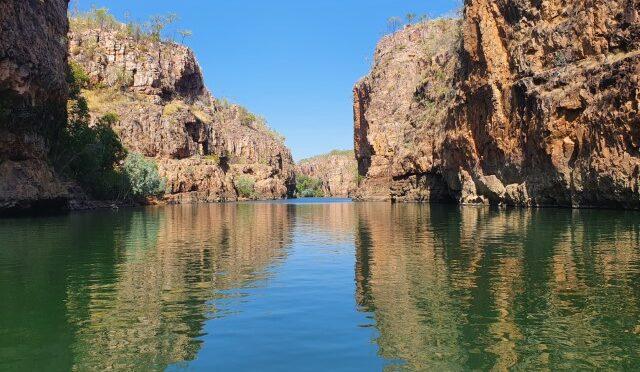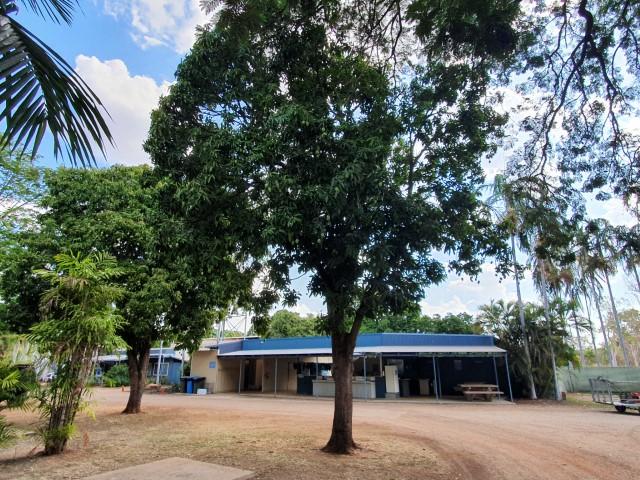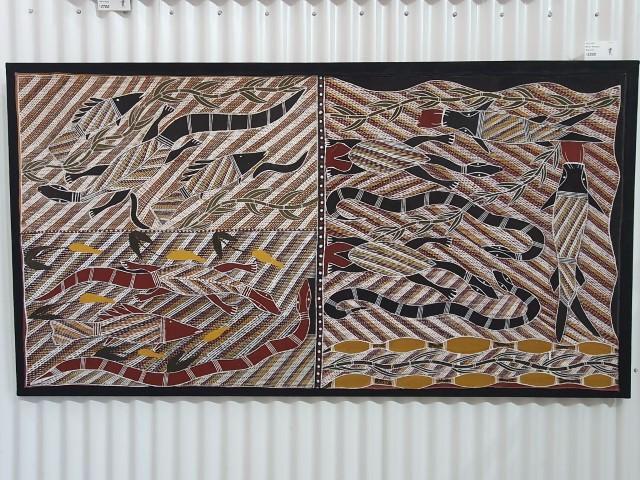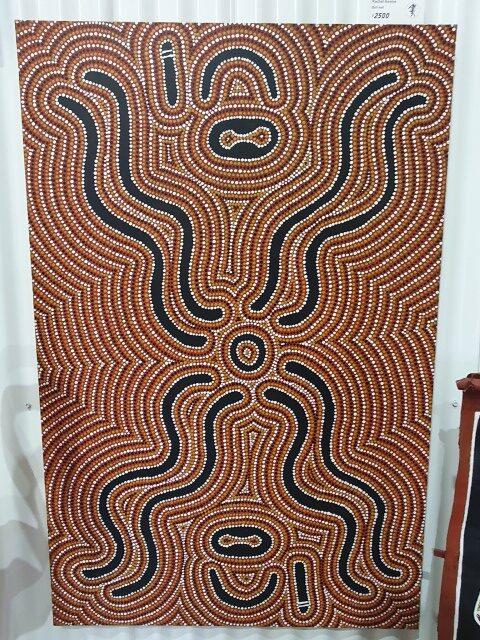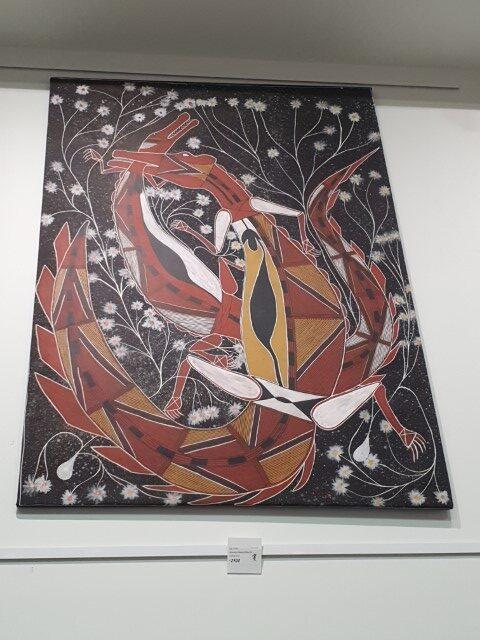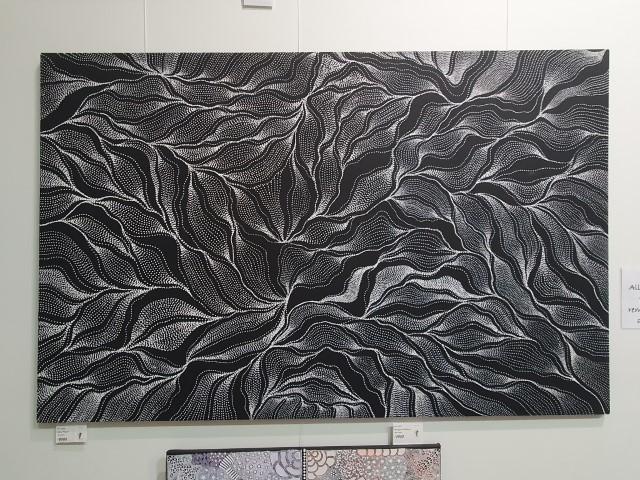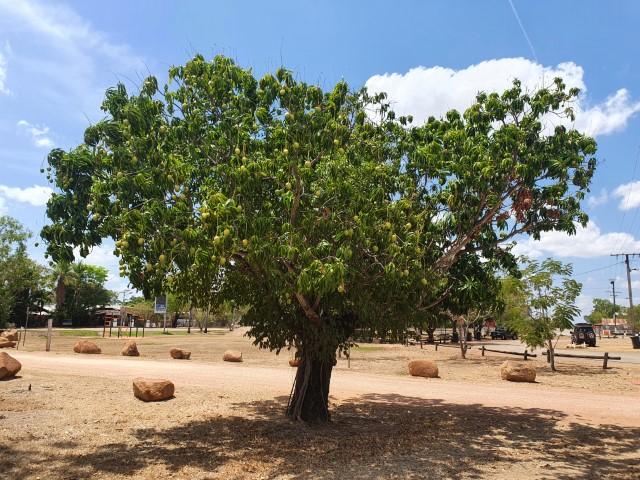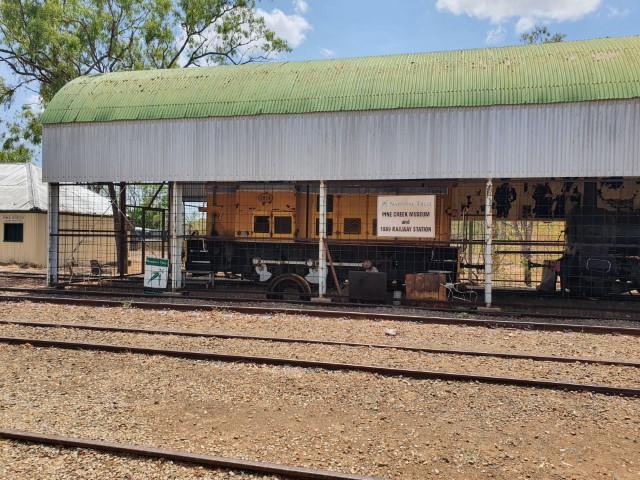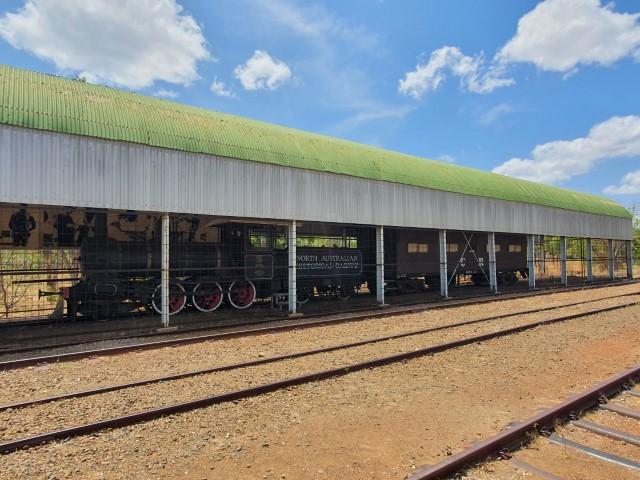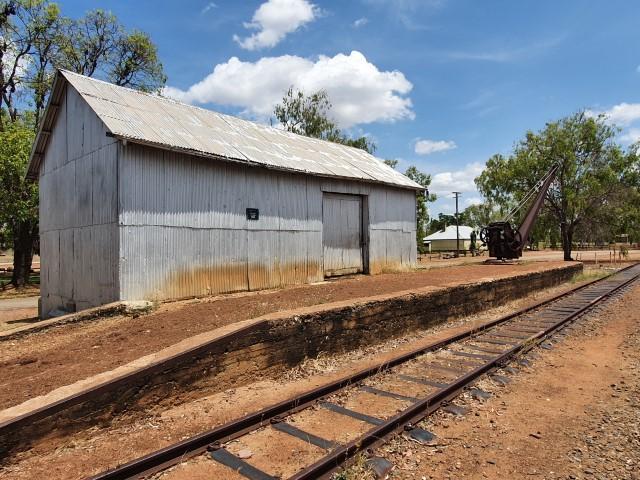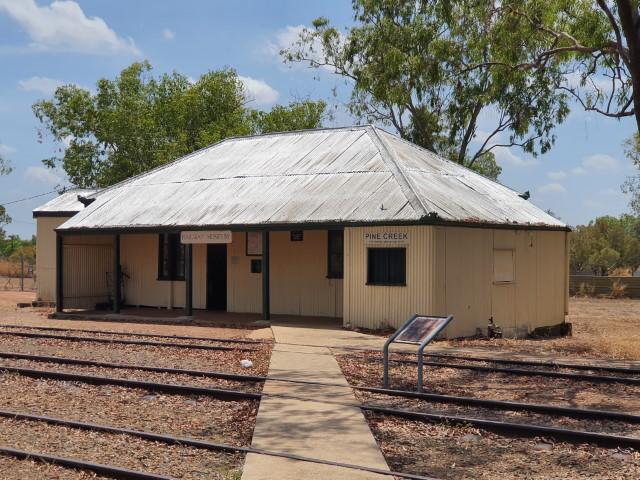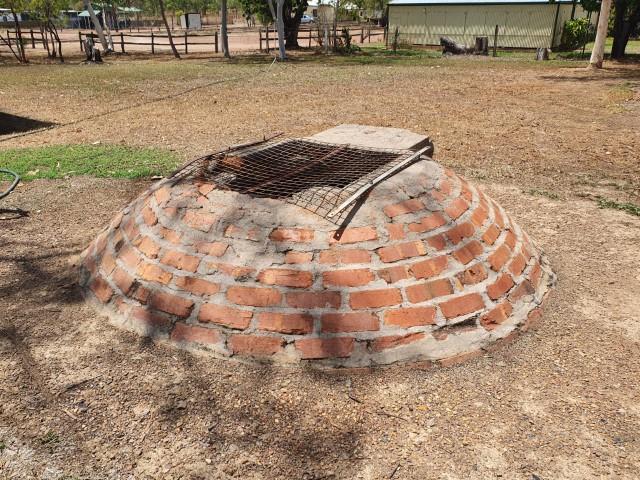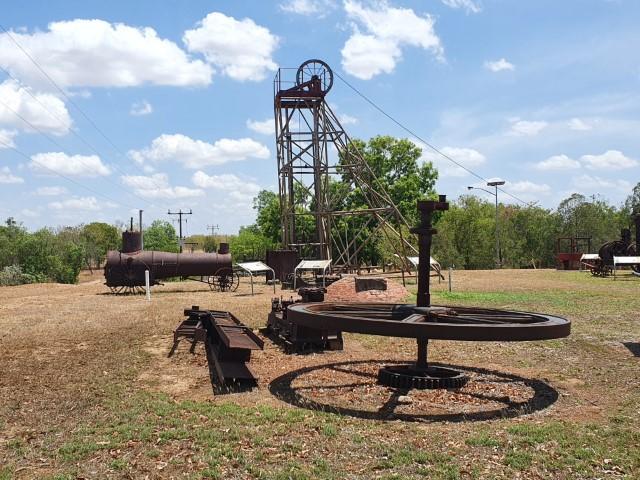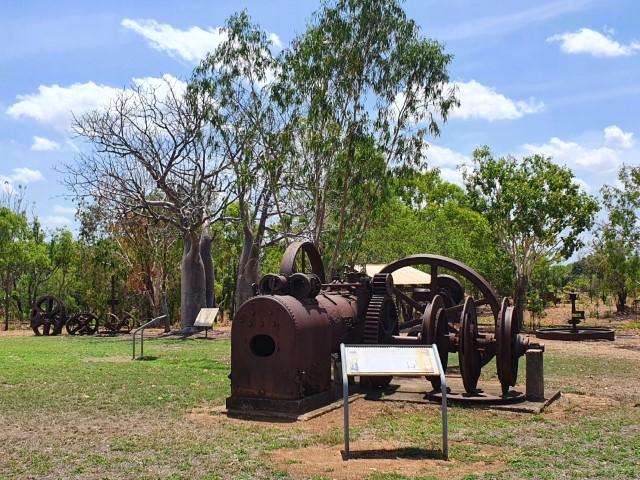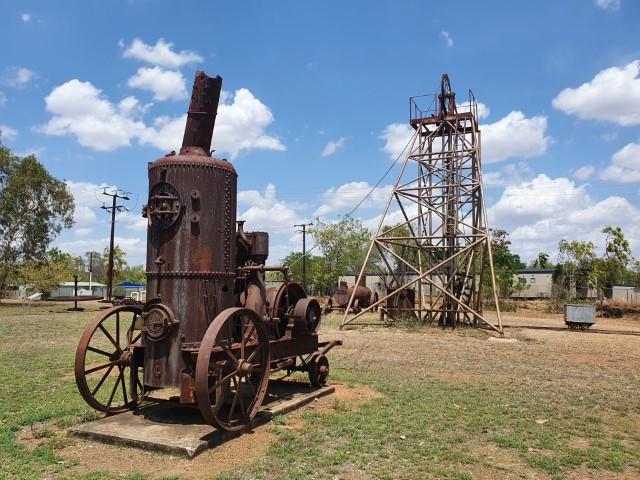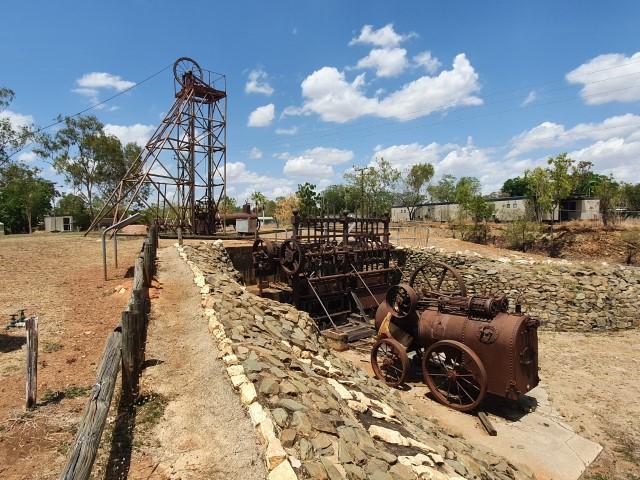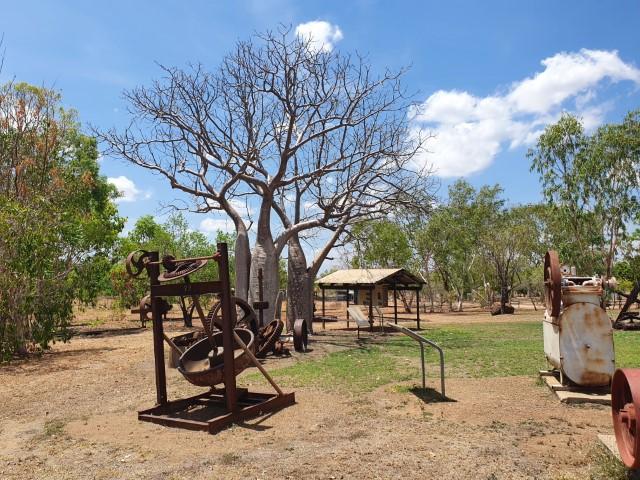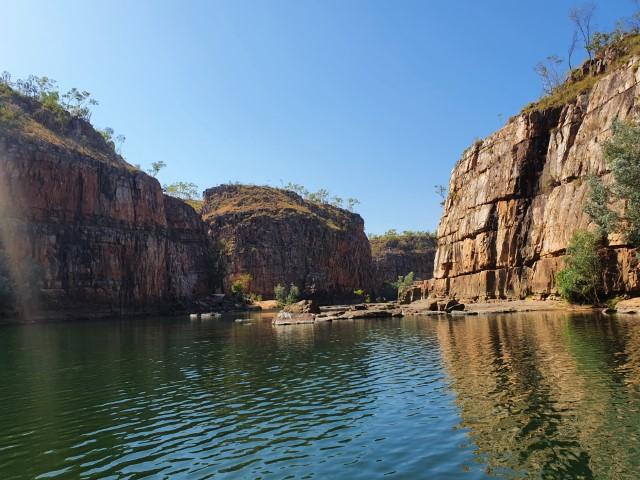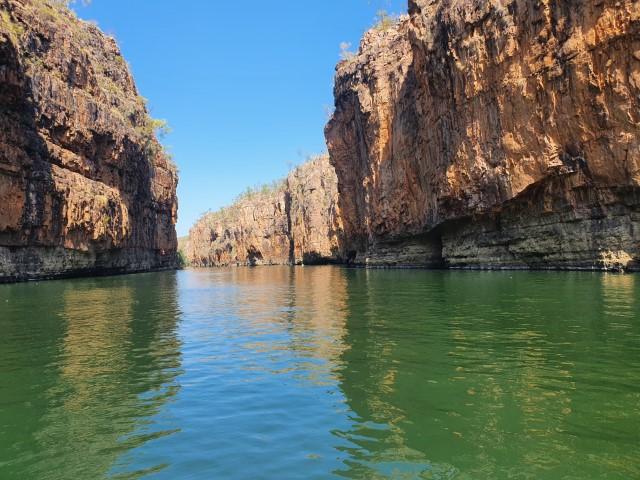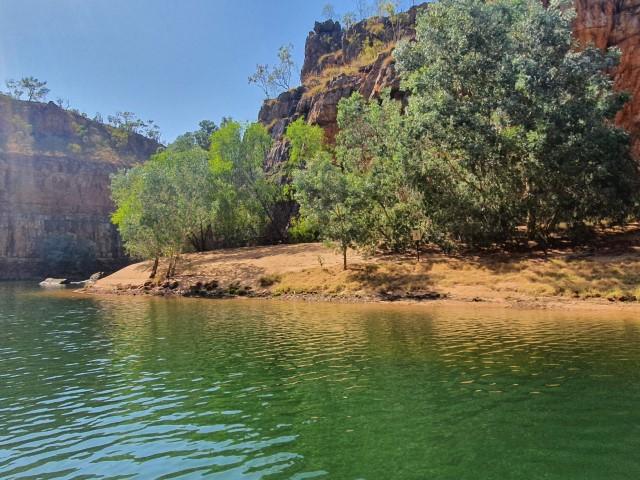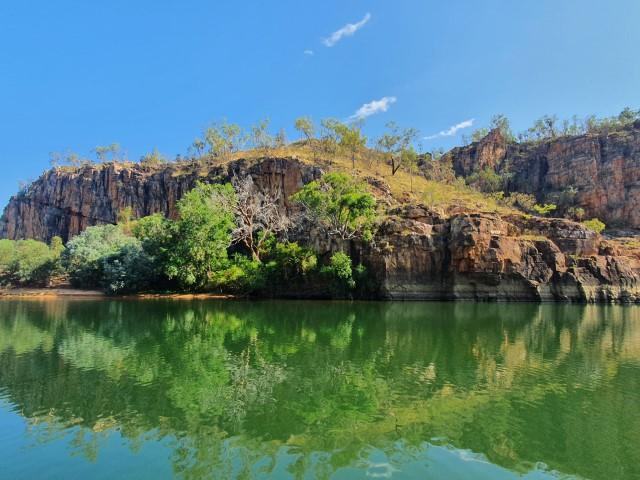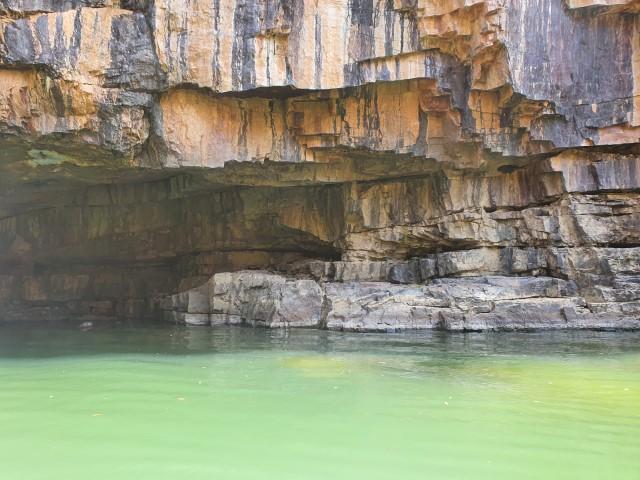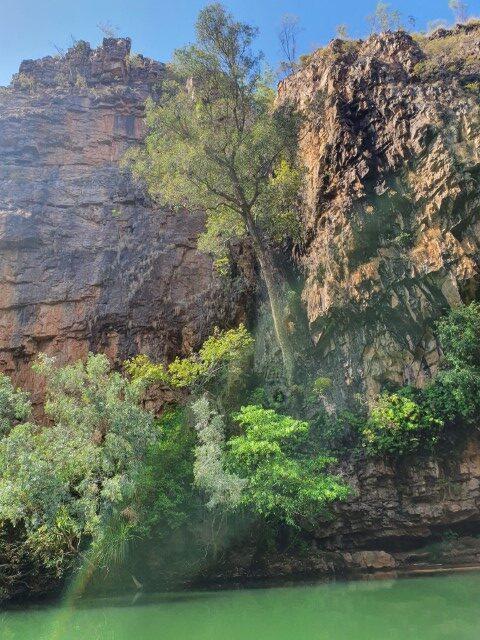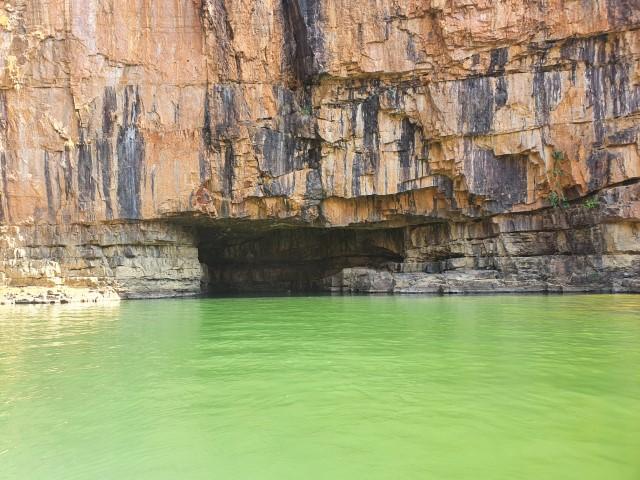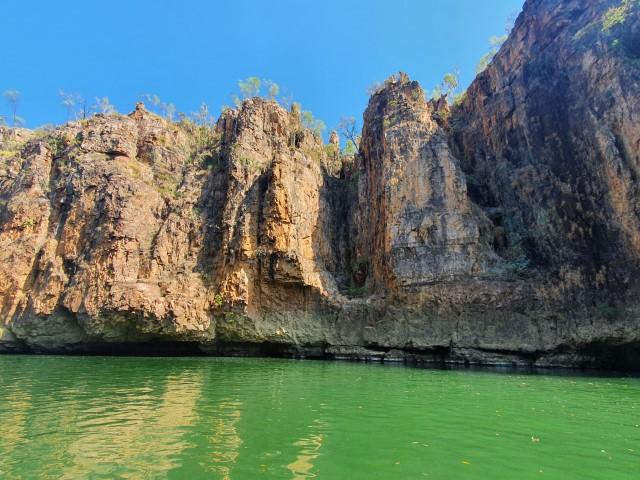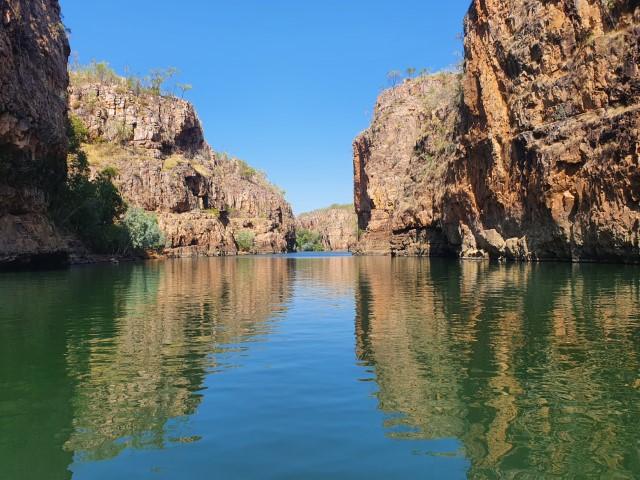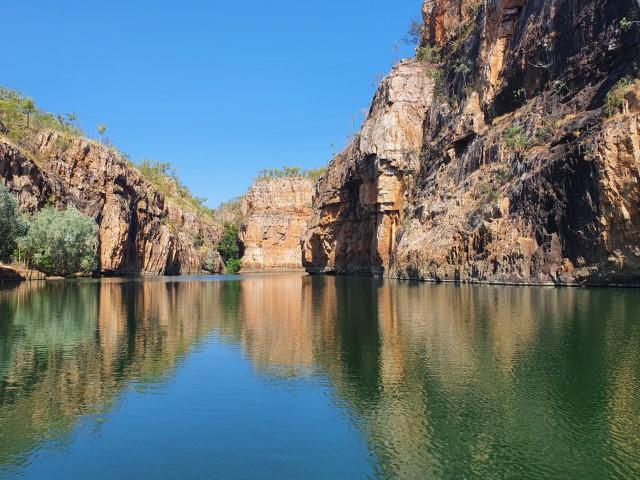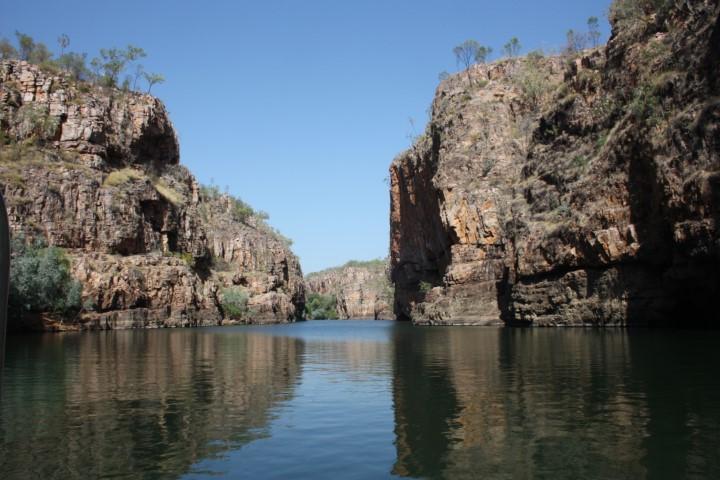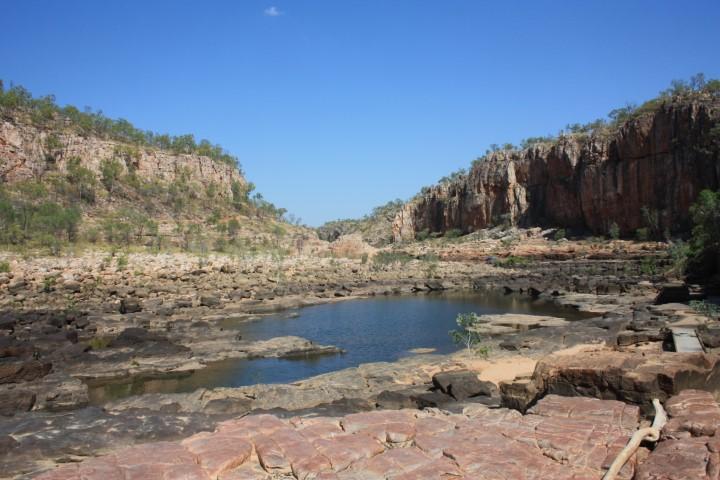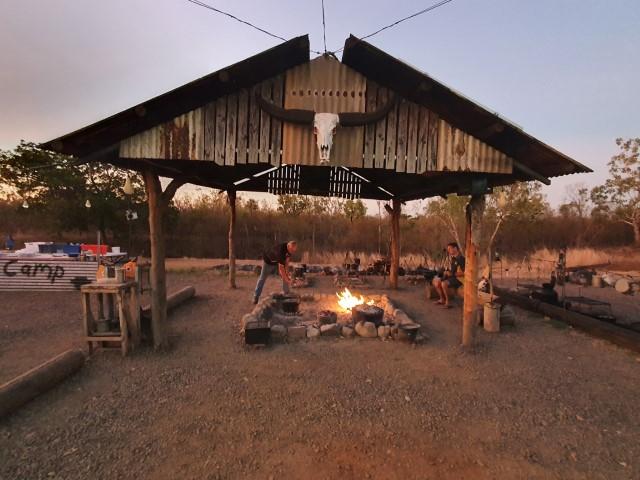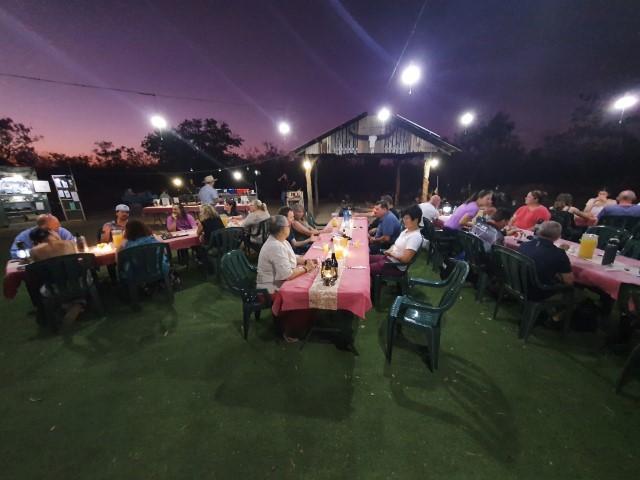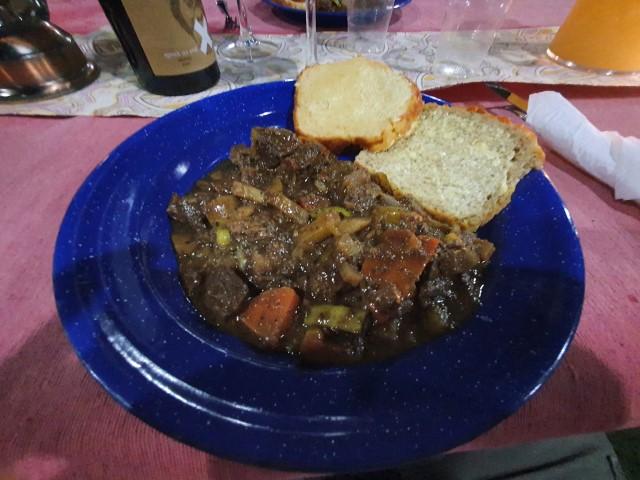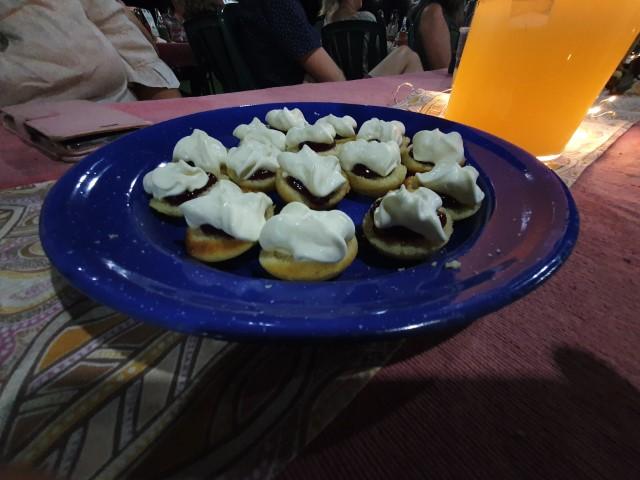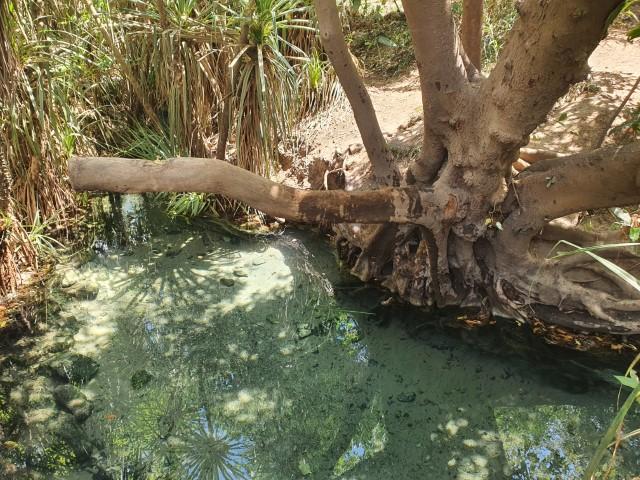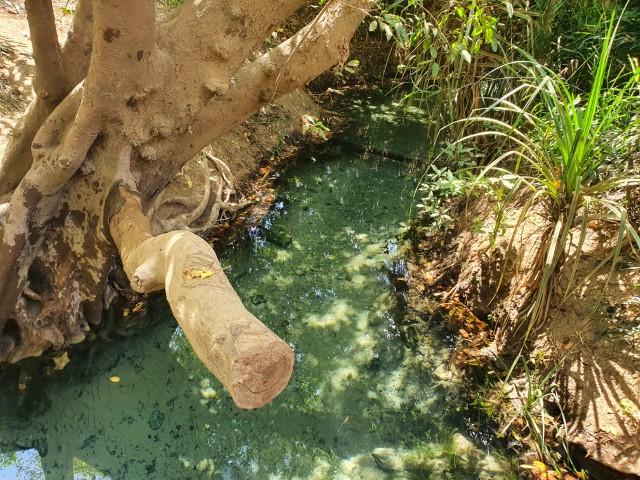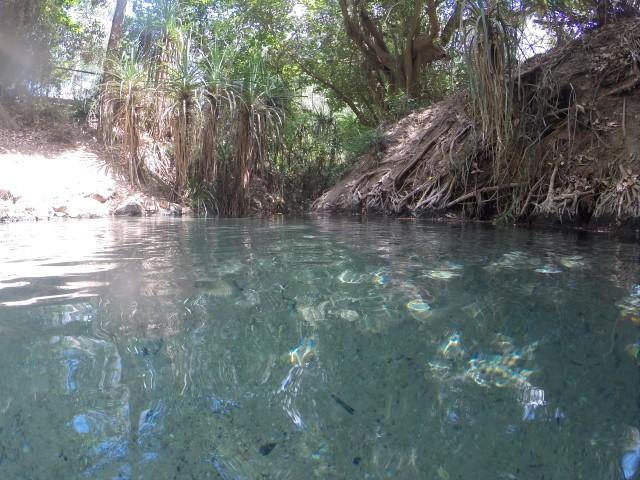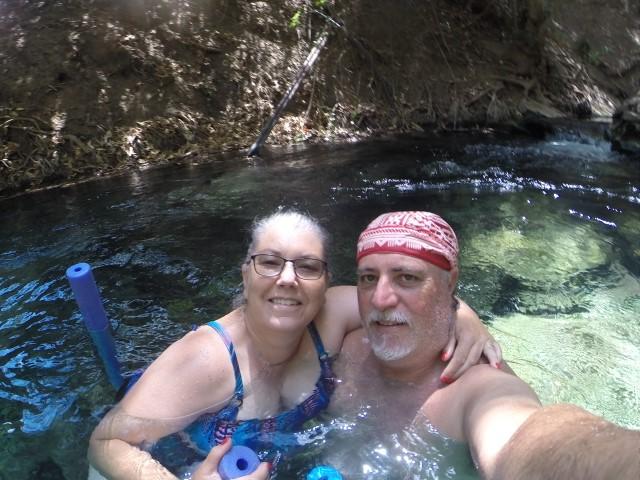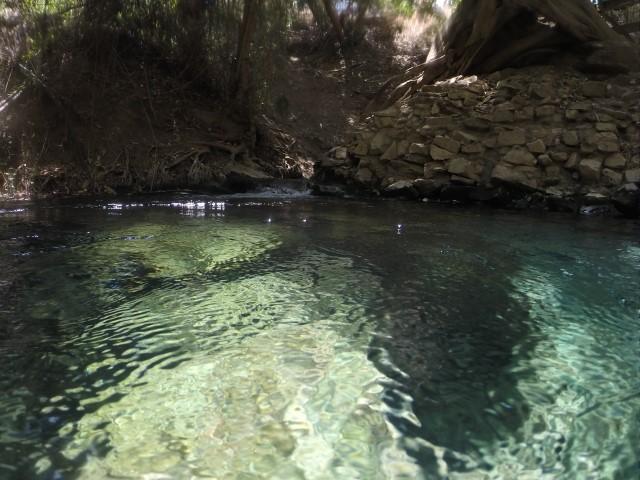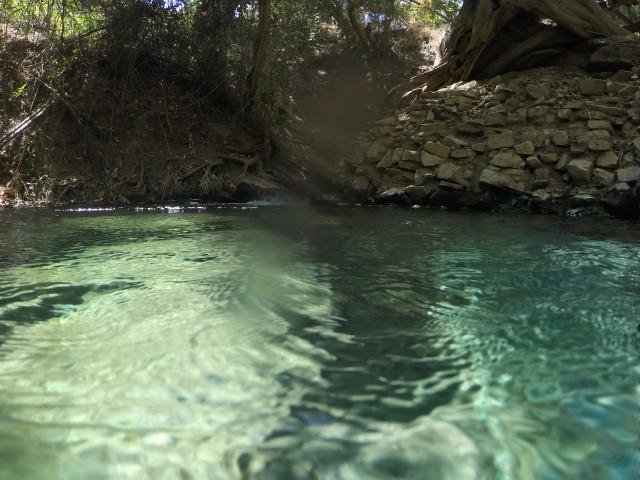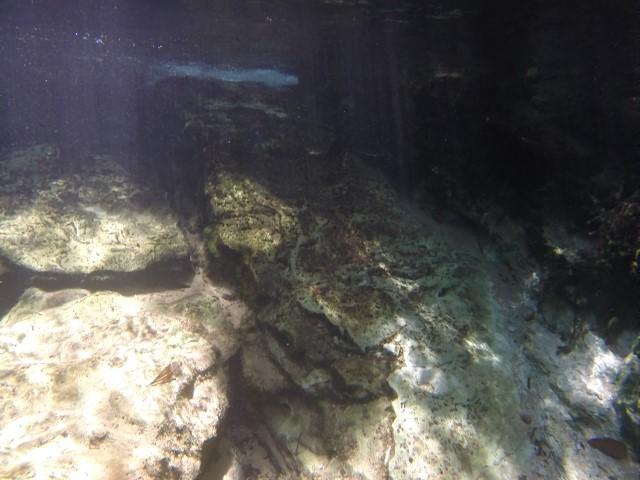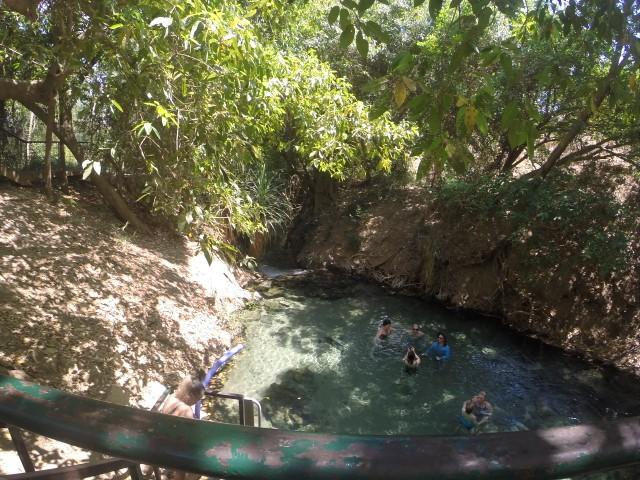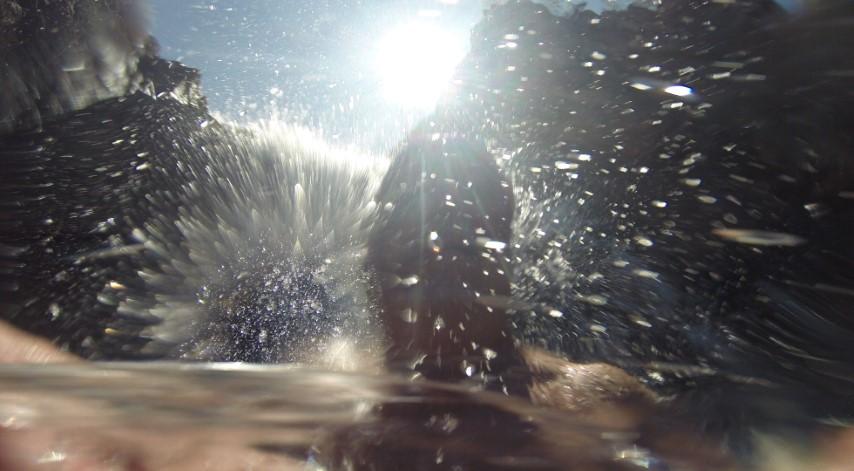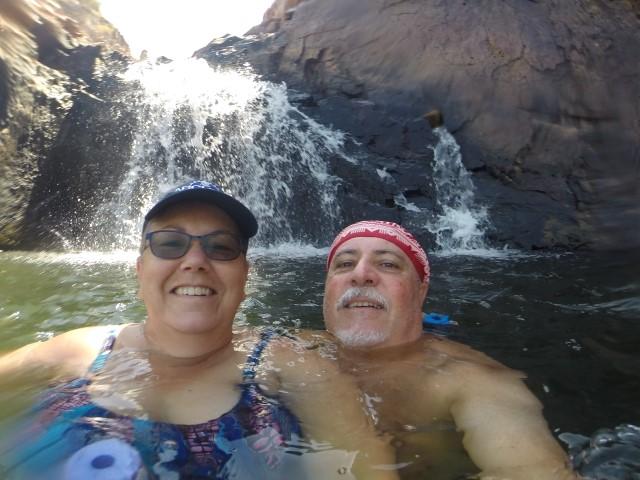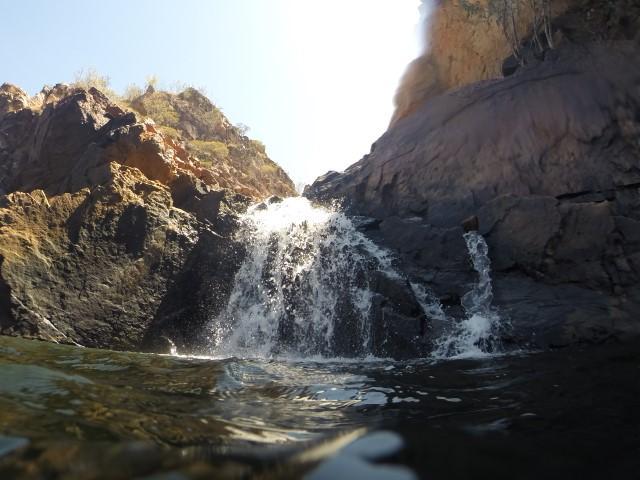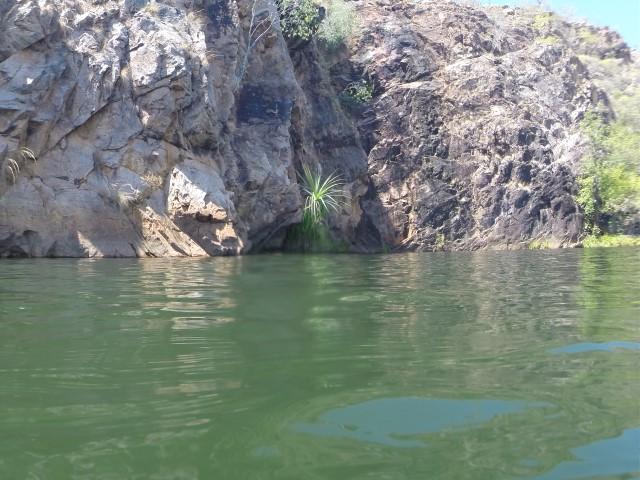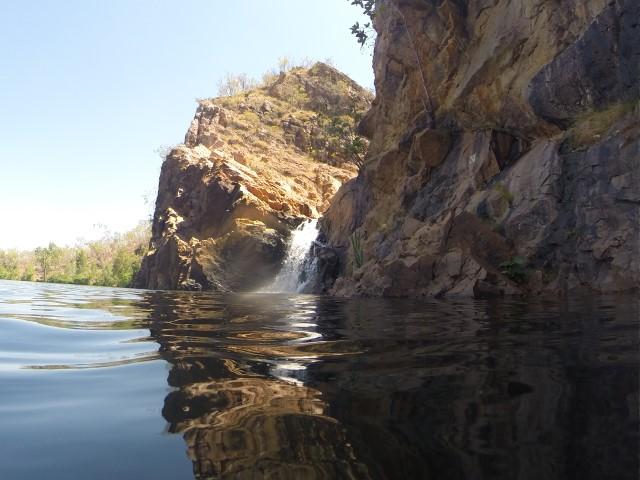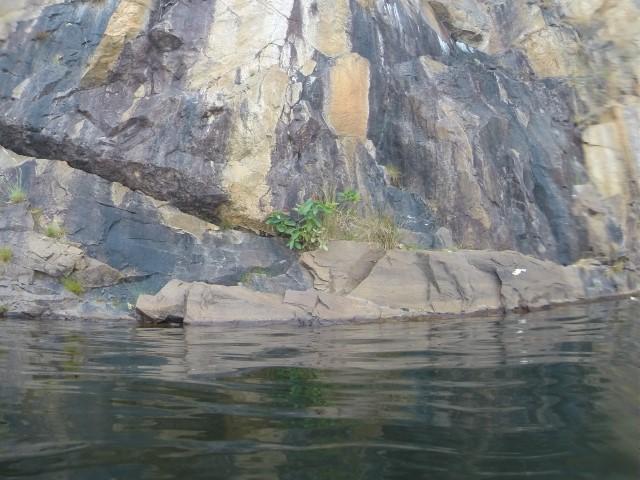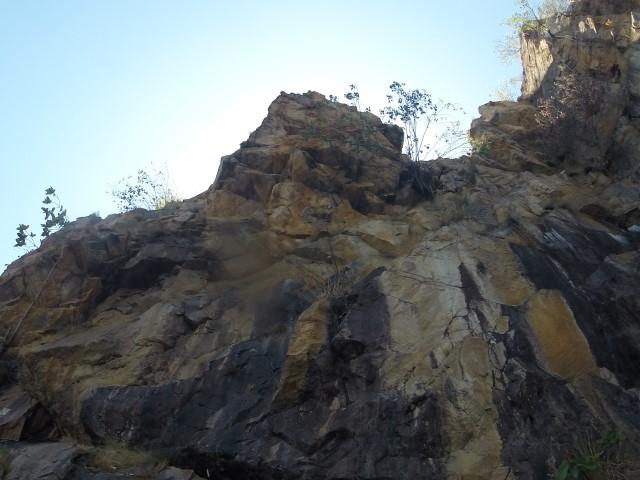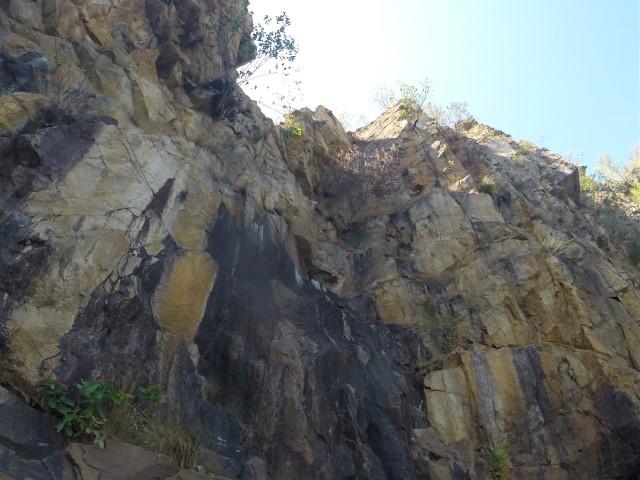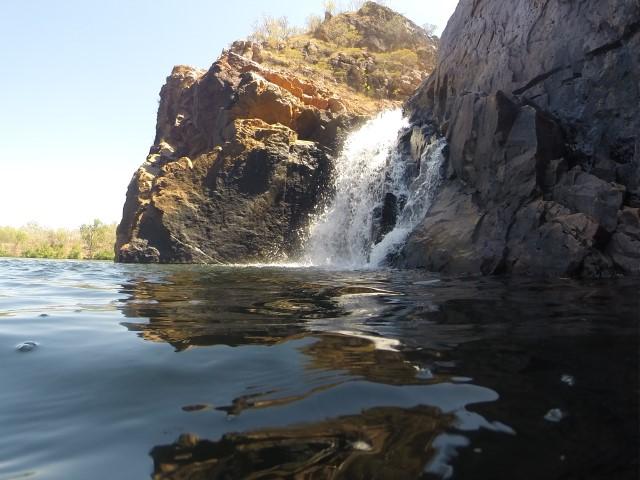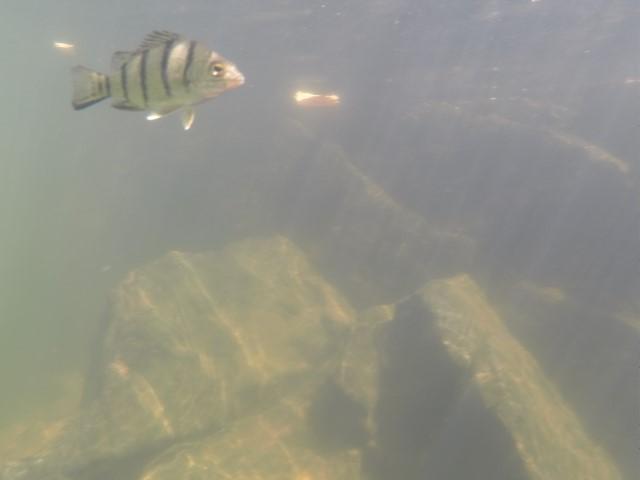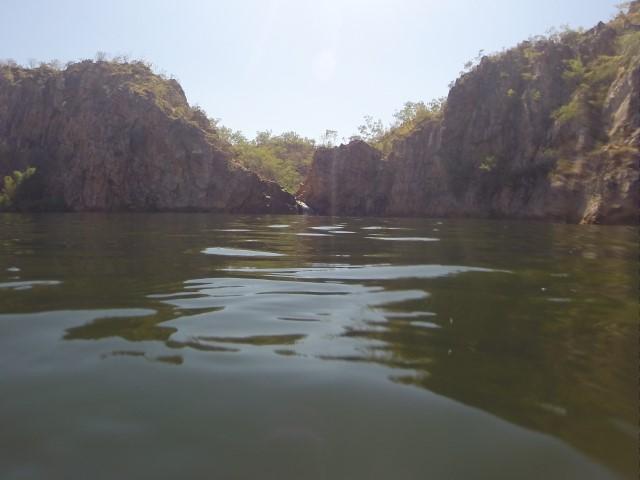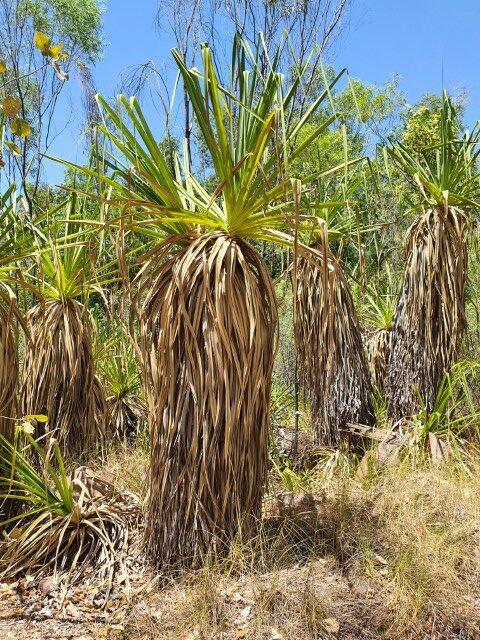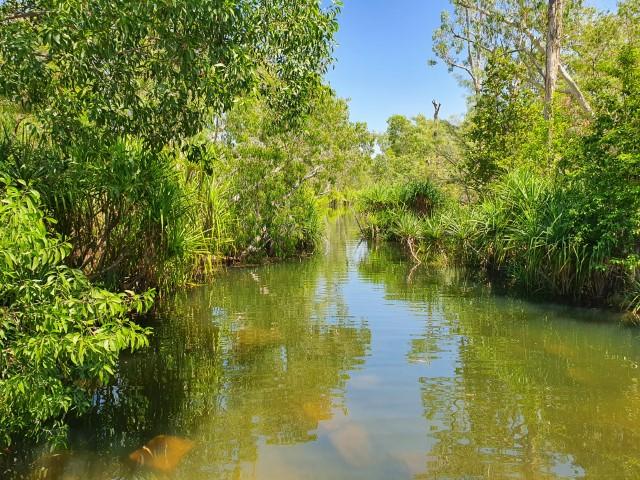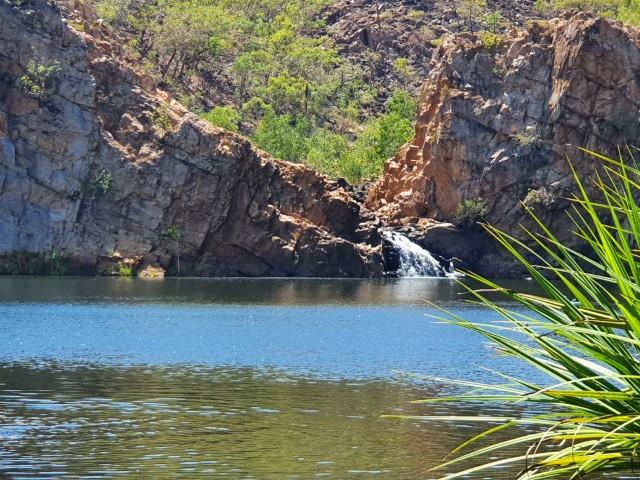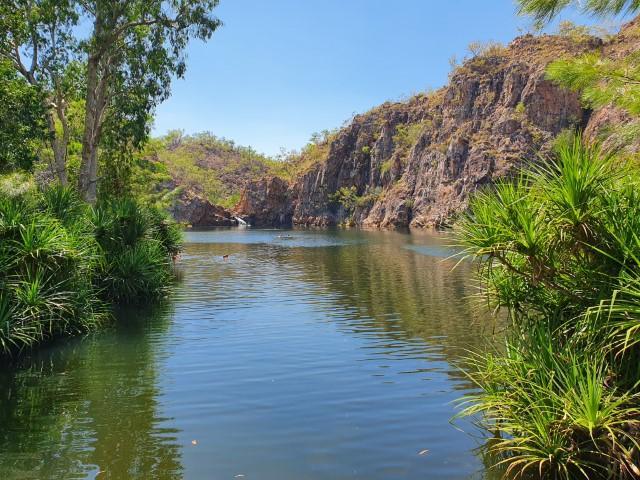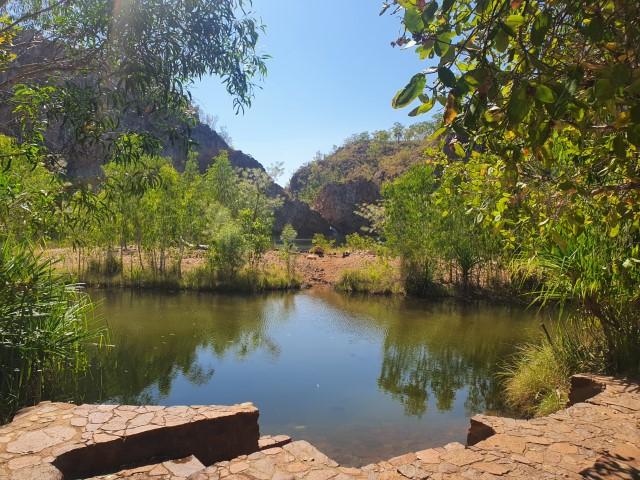We stopped in Katherine for a coffee three weeks earlier on our way to Adelaide River. Like most NT towns it comes with the usual warnings for travellers to be vigilant and keep their things locked up. We could see evidence of this but in all honesty Katherine was quite a town and we never felt unsafe in any way…
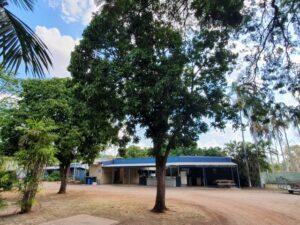
With that said, we did stay at the Discovery Katherine Caravan Park, which is 6km out of town. The park itself was very well presented and we were allocated a massive site next door to one of the live-in reception staff and her husband who was also working locally. The park had a dozen or so mango trees scattered around, all heavy with unripened fruit (damn it)!
The town itself was more than just a strip of shops and houses. It had a fairly new feel about it as though it had been recently brought up to date compared to the other towns of the NT. The indigigenous population was noticable but not quite as conspicuous as places like Adelaide River. It was most noticable when we went to stock up at the BWS where we saw some people turned away by police who were checking people’s id before entering.
It brings to life the issues with alcohol in the NT, most notably amongst the indigenous who have lost a couple of generations to substance abuse and a lack of purpose in their lives.
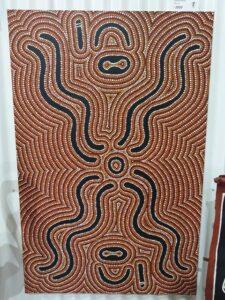
Hope springs eternal though… We did visit the Top Didj Art Gallery not far from the caravan park, which is also the home of Marksie’s Camp Tucker Dinner. We didn’t do the full cultural experience in favour of just wandering through the art gallery to view the magnificent indigenous art and sculptures ranging in price from $150 for a small canvas to $93,000 for a wall sized canvas that was truly stunning,
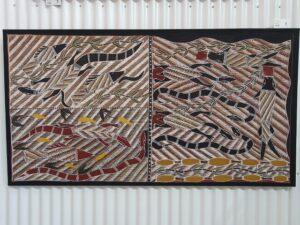
Indigenous art is everywhere in the NT and is one way at least that local indigenous people can maintain the culture, achieve some income and create purpose in their lives. You still have to feel sorry for the lost souls that sit in the parks each day and wait for the bottle shops to open to see if they can get in without being turned away. It’s heart-breaking to see what has been done to these people since colonisation.
We were originally going to stay a few days before Katherine at Pine Creek because to caravan park had really good reviews and it broke the trip up a little bit. Unfortunately for us the caravan park was closed for a couple of days right when we wanted to stay so we had to make do with a stop and a wander around.
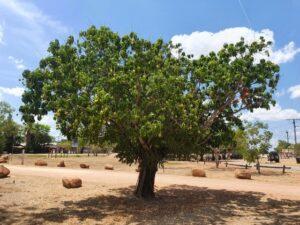
It was a little disappointing because Pine Creek was a very interesting little town with lots of history and things to see. The first thing we noticed was an enormous mango tree absolutely laden with unripe fruit in the central park area. As you move around the Northern Territory top end you begin to notice mango trees everywhere, not just the commercial orchards.
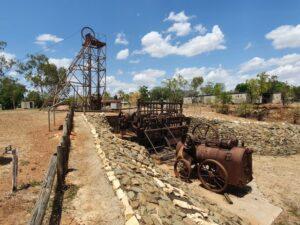
Beyond the mango tree was another park area with all sorts of historic equipment dating back to the gold mining days of the 1890’s, including a well preserved ore battery, steam engines, mine winch and other assorted mining equipment.
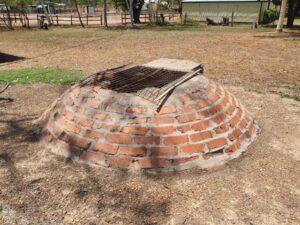
As well as the mining equipment there were two brick-domed wells (or water tanks) that were quite wide and deep, which underlined the importance of a stable water supply for these communities back in the day. The whole park area and exhibits were extremely well kept and presented and it would have been nice to have been able to spend a more leisurely time wandering around them even though it was stinking hot on the day
After that we wandered over to the rail museum next door. It was gold coin entry and we felt a bit guilty when we didn’t have any change but were invited to come in anyway.
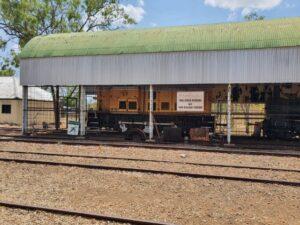
Pine Creek was part of the narrow-gauge railway from Darwin. The old station serves as the museum and also contains World War 2 information and displays due to Pine Creek being an airfield and army hospital base. The museum houses a well-preserved steam locomotive as well as other railway artefacts. It’s amazing that such a small town can put up such a comprehensive and well preserved set of exhibits.
Despite the heat it was really quite pleasant wandering around the place before getting back into the furnace that was the cruiser and heading on to Katherine.
Obviously the main attraction of the Katherine region is Katherine (Nitmiluk) Gorge and the gorge cruise is a must do experience… and so we did it!
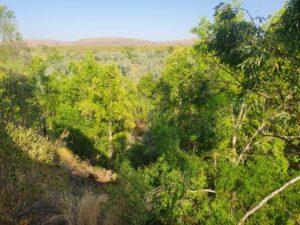
We turned up at the carpark to find a very impressive information center with cafe, tourist information and various information displays. The deck area looks out over the tree-filled valley prior to the gorge and looks for all the work like a scene from Jurassic Park.
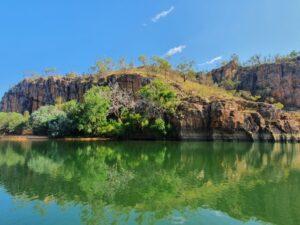
Your make your way down a 500m track to the wharf where the flat-bottom boats await. We were lucky enough to have an indigenous guide take our boat and we suspect that he may well have been one of the young boys that Marksie schooled in confident speaking some time ago. He was interesting, funny and knew when to speak and when to let the gorge speak for itself.
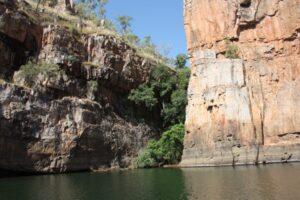
At one point in the second gorge he told us that it was forbidden for his mob to drink or swim at that particular location so as not to upset the rainbow serpent that lived there. He explained that he could guide us in the boat safely because his people hadn’t invented boats so it was a ‘loophole’ in his culture’s rules…
Our cruise was a ‘two gorge’ cruise. We would have liked to do the ‘three gorge’ cruise but the water was too low in the third gorge due to the time of the year and also that there hadn’e been enough rainfall the previous year.
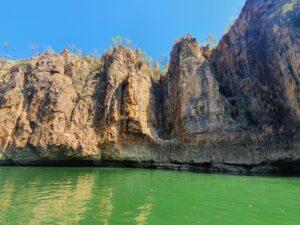
He explained that the ‘high tide’ mark was 30m above where we were floating and pointed out two caves high of the gorge walls where the water rises to in the biggest years. We also saw places in the gorge where long vertical cables are attached to the walls where they moore the boats in the wet season so that they stay put but rise and fall with the water level.
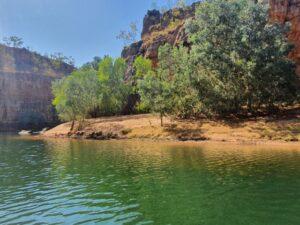
We were shown sandbanks where the freshwater crocs climb up to lay their eggs, a saltwater crocodile trap at the start of the first gorge as well a a number of red marine buoys tied to overhanging tree limbs. The red buoys are used to monitor for saltwater crocs by inspecting them for bite marks because the salties are both territiorial and curious. The trap is there for obvious reasons in case a saltie swims in during the floods in the wet season.
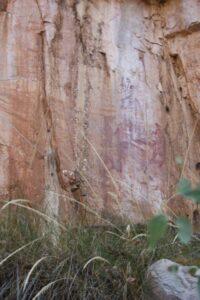
There is a 1km hike between the first and second gorge. At the start of the hiking section there is some ancient rock art painted on the walls about 15m up the sheer face.
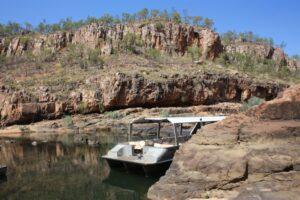
The boat in the second gorge is a bit narrower with tighter seating so that it can get into the narrow, shallow mooring point. This takes you through the most picturesque part of the gorge with the high vertical walls with the deep earthy red-brown rock. Our guide told us that the rock walls are not granite but actually formed from the worlds hardest sandstone. The gorge itself is a series of flooded fault lines that criss-cross the area and fill with water.
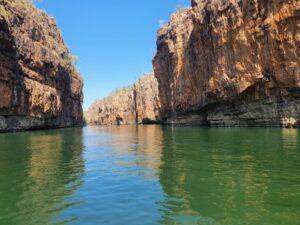
The waters in the gorge range in colours from blue to deep sea green and some stretches even look a bit like milky glacial water, which it most definitely is not!
The cruise is everything you expect of it and the gorge remains one of those iconic Australian places that seemingly shouldn’t exist but does… And you can also see why it holds deep spiritual significance to the indigenous people of the area.
You can be really lucky sometimes. Even as a result of bad luck! Back in Bees Creek when we went to Sandy Creek we copped a large rock to the windscreen which meant we needed to get it replaced. We organised for Obrien’s to do an onsite replacement at The Laughing Daisy where we were staying.
Mitch from Obrien’s duly turned up on the day and did a fantastic job replacing the cruisers windscreen and we got to talking about things to do whilst we were in Katherine. So Mitch tells us that he’s been trying to book his family onto a table at Marksie’s Stockman’s Camp Tucker but everytime he’s tried it has been booked out.
So Jo jumps onto her phone and looks it up and 2 minutes later we’re booked in for Friday nighs the day after we get to Katherine… Not only that but we discover that this will be the fourth last night before c closes down forever and retires! We felt so sorry for Mitch that he was never going to get to do this but mighty grateful that he shared it with us and that we got to do something a bit special before it closes down for good.
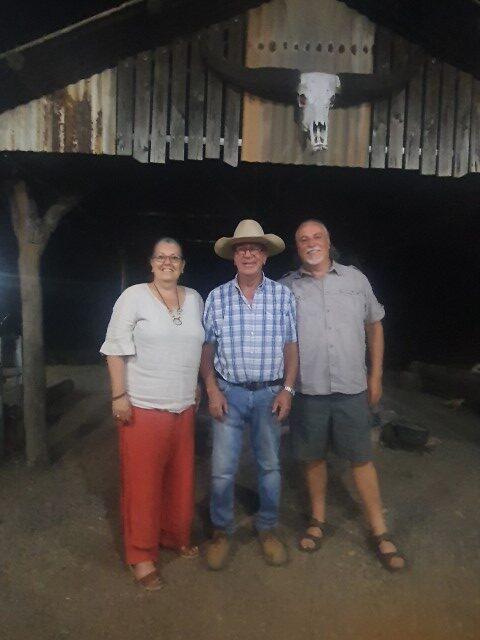
Marksie is a gentleman bushie who had been making a full time living from his camp oven dinners for over twenty year and at the age of 87, a very good 87, he is retiring. He will tell you that he is one of only four people left making a living from camp oven cooking and it is very sad that this tradition is slowly dying. THe really sad part is that he had the business up for sale, which was quite profitable, but did not get one enquiry about taking it over.
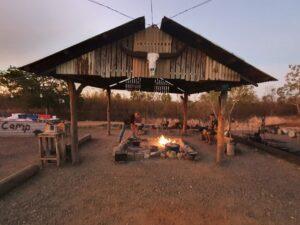
Marksie’s is a genuine experience where about 40 people are seated at four tables under the stars in front of a shelter that houses the firepit where all the cooking is done. On the four days a week that Marksie holds his dinners he gets up at sparrow’s fart and lights the fires to get the coals ready for the day. He then makes bushman’s stew and fancy dampers in the camp ovens with the stew slowly simmering all day for around 9 hours before it is ready to serve around 7:30pm.
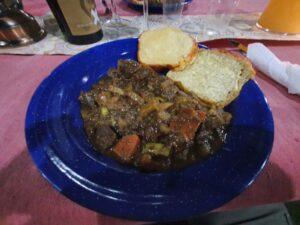
Marksie uses 13 different Australian bush tucker herbs, His dampers are also flavoured with bush herbs as well as being fancied up with cheese crusts and the like. Marksie is so skilled with his camp ovens that he can cook pavlova shells in them although they reserved for special occasions. Our after dinner treat was ‘Gem Drop Scones’ with Whipped Cream and Damson Plum Jam washed down with proper Billy Tea.
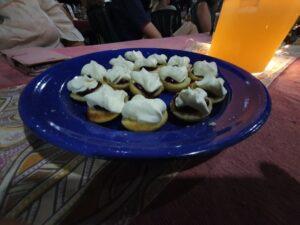
Marksie makes his Billy tea, suprisingly, with just two teaspoons of tea in an eight cup billy plus an unbroken gum leaf. The billy is spun vertically three times to settle the leaves to the bottom. If you’ve never had billy tea before then this is truly the way to have it… black and no sugar needed. It’s a perfect thirst quencher!
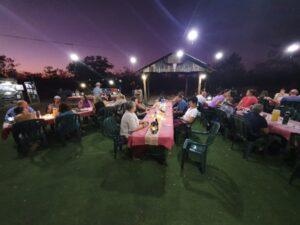
Before, during and after dinner, Marksie tells stories and paints a picture of life as a stockman back in the 1920’s at Wave Hill Station. He explains how the plain camp stews, dampers and billy tea differ from his contemporary flavours and methods and about his own journey of learning from local indigenous people as well as helping young indigenous men become tour guides by giving them the opportunity to learn how to speak confidently to groups of tourists.
Marksie is a remarkable man and we were privileged to attend one of his last dinners and share his fire… Had we not copped the rock that broke our windscreen we would probably not have done this experience so it just goes to show that bad luck sometimes brings good luck as well…
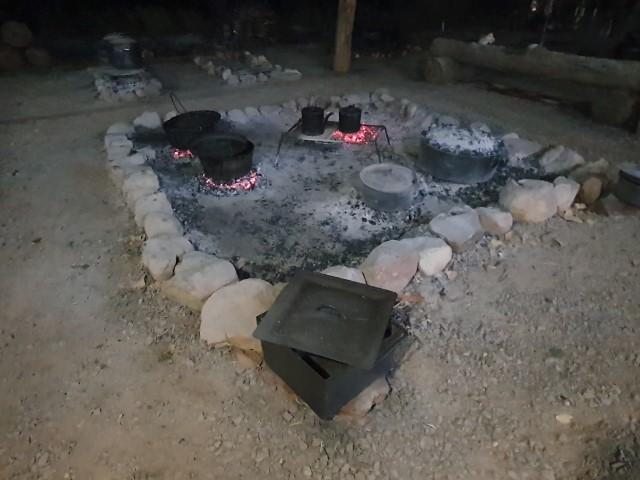
It seems that once you get to Mataranka and head north you’re always visiting or stopping at places with hot springs, despite the fact that none of them are actually ‘hot springs’ as in geothermally heated. They’re all just natural springs bubbling to the surface under pressure at ground temperature, which is usually tepid.
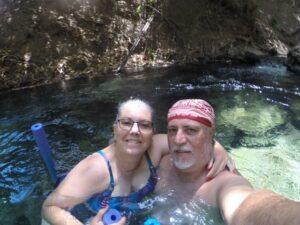
Katherine has it’s own ‘hot springs’, which are on the edge of town and no less beautiful and relaxing. The pools themselves remain quite natural with the exception of the walkways, stairs and ladders that provide access to them.
They are crystal clear and contain the usual freshwater fish that are happy to share the pools with people. The temperature was slightly cooler than Mataranka and we also caught up with Theresa and Greg (from Daly Waters) whilst lazing away an hour or two in the upper pool.
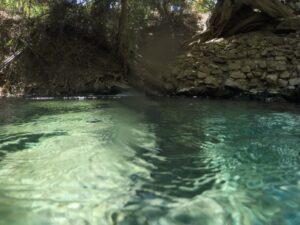
Theresa and Greg had parted with Julie and Ian to back east while the latter were continuing to head west like us after some more time in Darwin.
We ended up having dinner with them at the Katherine Club (not to be confused with the Katherine Country Club, which we nearly did) to say final farewells as we would be unlikely to see them after that. It was a very enjoyable evening and as good a good club meal as you would get anywhere else. We wish them well on their forward travels!
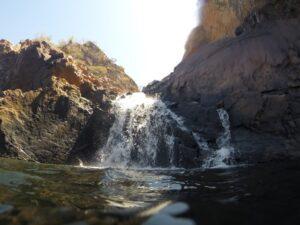
Sixty kilometres north of Katherine is Edith Falls (Leliyn). Yet another magnificent top end waterfall swimming hole perfect for a refreshing float on a pool noodle. Edith Falls is a large swimming hole and the water is not quite as clear as the others; more of a greenish tinge, possibly due to the lush bushy surroundings…
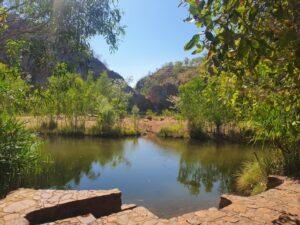
To be honest, this felt like the most ‘croccy’ of the swimming holes that we had been in. But the signs said it was safe so who are we to not risk life and limb for the chance to once again lower ourselves into the healing NT waters…
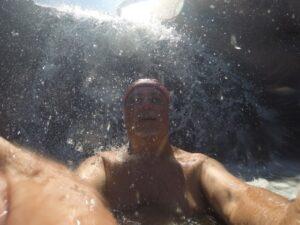
Travelling as we are at the tail end of the tourist season we were lucky enough to have this waterhole mostly to ourselves, which always makes it that much more special. You don’t have to work to hard for the best photographs, you can paddle yourself to the falls at your liesure and have them to yourselves and the rest of the world disappears… at least until you get out, dry off and start sweating again 5 minutes later!
Edith Falls are connected to Katherine Gorge and are a much lower cascade style waterfall than most that we visited and probably flowing with much less volume than during the wet seasson. Very picturesue all the same and almost cool in temperature.
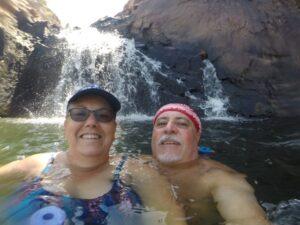
The pool noodles have copped a hammering since Mataranka and Bitter Springs but have been proven to be a survival necessity given the number of waterholes, springs and rock pools they have been in. We feel we should carve the names of the places they have taken us into them like a pool noodle tattoo…

